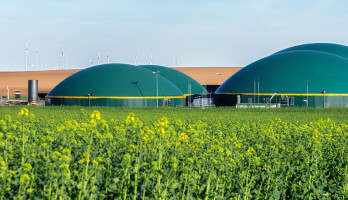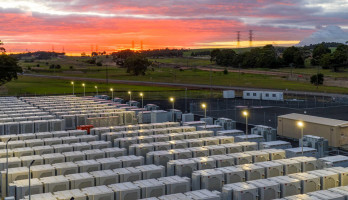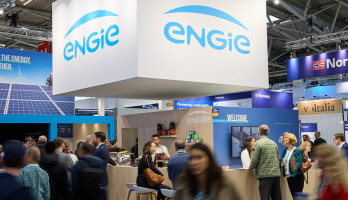
Lack of gas supply: How the hotel industry must respond now
Energy costs are skyrocketing, and concerns about gas shortages are on the rise. This also affects the hotel industry. What consequences do hotels now face - and how can they prepare for them? Find out how the experts at ENGIE Deutschland can guide you safely through the energy crisis.
Prices for natural gas, heating oil and electricity have been rising for months and have already reached dizzying heights - and there is still no positive trend reversal in sight. Due to the tense situation, the German government recently declared the second stage of the "Gas Emergency Plan" in order to make preparations for a possible supply stop on the part of Russia and for a gas shortage in this country in the fall and winter. This also affects the hotel and restaurant industry, as Matthias Sommer of ENGIE Germany knows. The head of the Real Estate Sales department has been working with hotel customers throughout Germany for years and clarifies: "Per se, hotels have a high demand for heat and domestic hot water. That's why I advise all hoteliers to take a close look at their energy consumption in order to reduce energy costs."

Sustainability as a success factor in the hotel industry
However, this recommendation is by no means new. Sustainability, environmental protection and climate neutrality have been considered a success factor for the hotel industry for years, in order to meet the changing demands of guests for precisely these aspects. Society and politics are increasing the pressure to make real estate of all kinds climate-friendly, at best climate-neutral - and thus also hotel buildings. In addition, the new Environmental Social Governance (ESG) criteria and the taxonomy regulation of the EU call on hotel owners to take joint action. At present, however, neither the hotel industry nor many other economic sectors are in a good enough position to meet this requirement. This is due in particular to the political framework conditions: Although as early as 2007, and thus 14 years ago, the then incumbent German government announced in its "Integrated Energy and Climate Program (IEKP)" that climate protection and the worldwide increase in energy demand and rising energy prices, especially for oil and gas, require new energy policy directions and that domestic energy sources and renewable energies must be expanded, not much has been done since then, and not nearly enough. On the contrary, the new German government and, above all, Vice Chancellor Robert Habeck are acting with the "Easter Package" and the new "Summer Package" - narratives that conceal extensive legislative changes with the aim of making up at high speed for the failures of the past decade.
How gas supply affects the hotel industry
This approach requires deep and broad technical expertise, which the experienced ENGIE team can tailor to the individual requirements of each hotel building. "Thanks to our 'Real Zero' plan, hoteliers can rely on us to align their property soundly with sustainability and climate neutrality - while they can concentrate on their core business and the well-being of their guests," Matthias Sommer sums up. There is a consensus in the industry that hotels will have to follow this path in the long term - but the need for action is already becoming much more urgent in the short and medium term in view of the impending gas shortage. But how exactly would a gas supply freeze affect the hotel industry? Basically, only users with a registered performance measurement (“Registrierte Leistungsmessung”, RLM) would be taken off the gas network by the Federal Network Agency; this applies to all users with a heat quantity of more than 1.5 million kWh per year or with an output of more than 500 kW. Even if it can only be estimated to what percentage of all hotels this applies, the energy expert warns: "We can safely assume that gas will continue to become more expensive. Hotels must reckon with a double-digit cost share of their total energy costs. In addition, it cannot be ruled out that gas volumes will simply not be sufficient for all connections in Germany; hotels would then be left cold and would no longer be able to provide hot water for their guests, for example. Both scenarios could threaten the existence of hotels."
With ENGIE Germany, the hotel industry masters the energy crisis
It is therefore important for hotels to finally take a serious look at these issues: Consistent optimization of the technical building equipment and the replacement of fossil energy sources with renewable energies are approaches that prepare hotel buildings for the future and secure the building value in terms of ESG criteria. ENGIE Germany is supporting the hotel industry in this and is currently initiating the "Energy Efficiency and Climate Protection Network " together with the IHA. The constituent meeting will take place in September 2022; interested hoteliers are welcome to contact Matthias Sommer. Mattias Sommer stresses: “I am convinced of the fact that climatic neutrality is a question of the mentality. At the moment, many people are concerned about the high cost of energy and the lack of gas supplies, but climate-neutral action is essential if we are to stop climate change and preserve our planet for future generations. For this to succeed, it also depends on the hotel industry. After all, hotels emit around five million tons of CO2 per year in Germany. "









